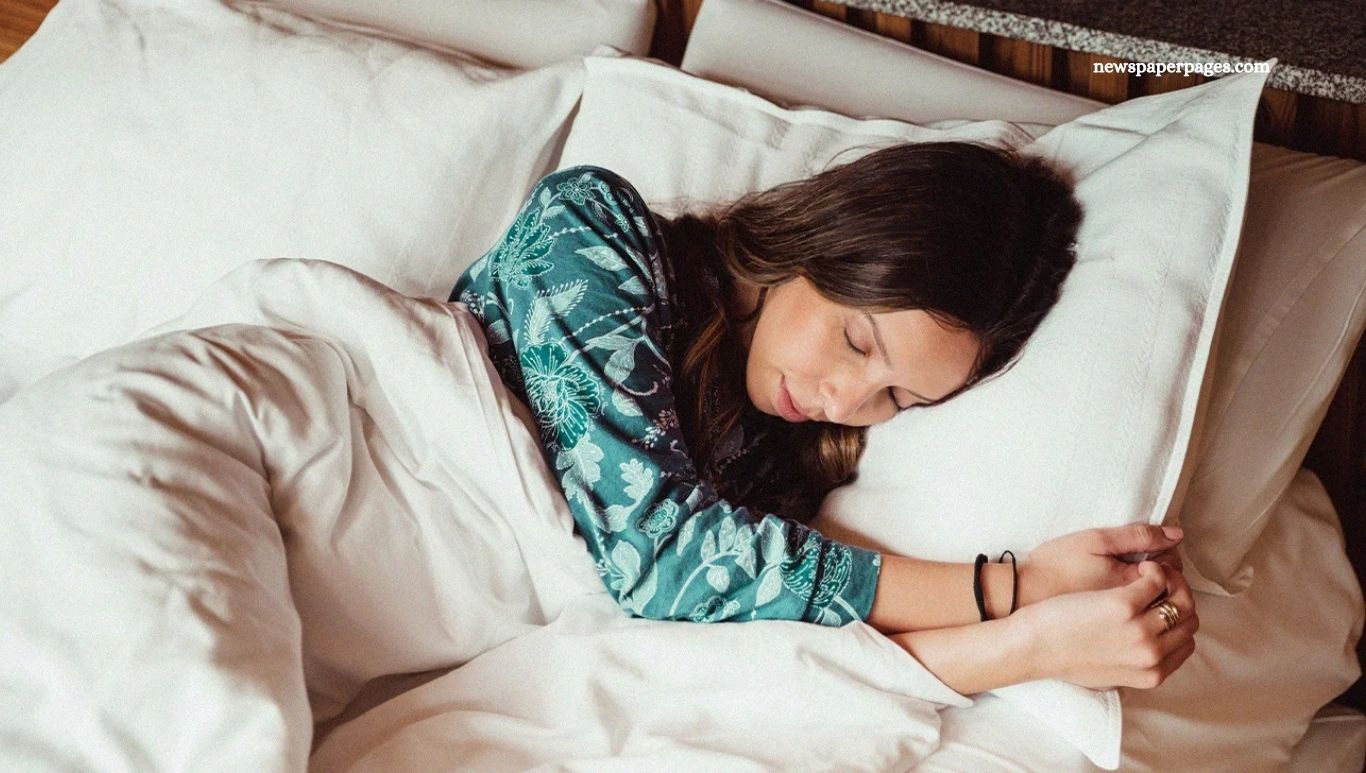Improving your diet and lifestyle can enhance Better Sleep quality, while certain supplements and natural remedies may also support better rest. Quality sleep is essential for overall health, just like regular exercise and balanced nutrition.
Studies reveal that poor sleep negatively impacts cognition, mood, heart and immune function, and raises the risk of obesity, diabetes, and other conditions. Prioritizing restful sleep is crucial for optimal health. Below are 15 evidence-based tips to help you sleep better tonight.
Increase bright light exposure during the day
Exposure to natural sunlight or bright light during the day helps regulate your circadian rhythm, boosting daytime energy and enhancing sleep quality and duration at night. A 2022 study showed that daytime bright light improves both sleep length and quality. If sunlight isn’t accessible, using artificial bright light devices can be a helpful alternative. Additionally, a 2017 study of over 100 office workers found that morning light exposure reduced the time it took to fall asleep, especially in winter, and improved the body’s internal clock synchronization and overall sleep quality.
Read More: Supporting Yourself During Depression and Weight Gain
Reduce blue light exposure in the evening
Nighttime light exposure disrupts hormone levels, especially melatonin, which is crucial for relaxation and deep sleep. Blue light from electronic devices like smartphones and computers is the most harmful. To minimize its impact, try wearing blue light-blocking glasses and avoid using TVs, phones, and bright lights at least two hours before bedtime.
Don’t consume caffeine late in the day
A single caffeine dose boosts focus, energy, and athletic performance, but a 2023 review found that consuming caffeine late in the day cuts total sleep by 45 minutes and lowers sleep efficiency by 7%. Caffeine may also disrupt REM sleep, though studies on daytime intake are inconclusive. To ensure quality rest, avoid caffeinated drinks at least 8 hours before bed and caffeine supplements within 13 hours. If you crave coffee in the late afternoon or evening, choose decaf instead.
Reduce irregular or long daytime naps
Short power naps can boost alertness, but long or irregular daytime naps may disrupt nighttime sleep by confusing your internal clock. Effects vary—2021 research suggests naps might benefit athletes or those with intense physical activity without harming sleep quality. If your naps don’t affect your nighttime rest, there’s no need to change. However, if naps interfere with sleep, try shortening or limiting them.
Try to sleep and wake at consistent times
Your body’s circadian rhythm follows a natural cycle synced with sunrise and sunset, making consistent sleep and wake times vital for better sleep quality. A 2020 review of 41 studies found that irregular or late bedtimes harm sleep quality. To improve your rest, aim to wake up and go to bed at the same time daily. With routine, you may eventually wake up naturally without an alarm.
Take a melatonin supplement
Melatonin, a key hormone that signals your brain to relax and prepare for sleep, is a popular supplement that may help you fall asleep faster. While the FDA doesn’t regulate melatonin like a drug, studies have examined doses from 0.1 to 10 mg taken up to two hours before bedtime. Start with a low dose and adjust as needed, but consult a healthcare professional before use. Always seek medical advice before giving melatonin to children, as its long-term effects in kids remain unclear.
Consider these other supplements
Supplements like magnesium, nitrate, omega-3, resveratrol, and zinc may help promote relaxation and improve sleep. While not cure-alls, they can be effective when combined with other sleep strategies. Test each supplement individually to monitor its impact and avoid any adverse reactions.
Don’t drink alcohol
Drinking alcohol at night can disrupt sleep and hormone balance. It may worsen sleep apnea, increase snoring, and disturb sleep patterns, while also reducing melatonin production, which regulates your circadian rhythm. An occasional evening drink is usually fine, but avoid alcohol close to bedtime most nights for better rest.
Get a comfortable bed, mattress, and pillow
Your bed quality plays a key role in sleep comfort and duration. Poor bedding can contribute to issues like lower back pain, making restful sleep harder to achieve. A 2021 review suggests medium-firm mattresses may reduce discomfort and support better sleep, though preferences vary widely.
A 2024 analysis of nine studies found that bedding and sleepwear materials affect sleep differently. Wool helped adults fall asleep in cooler temperatures, linen improved sleep for young adults in warmer climates, and goose down increased deep sleep in cool conditions.
If your mattress or bedding is outdated, upgrading could be a worthwhile—though potentially costly—step toward better sleep. Choose materials based on your comfort and environment.
Optimize your bedroom environment
Your bedroom environment goes beyond just a comfortable bed—it also includes temperature, noise, ventilation, and air quality. External light, noise, and artificial lighting from devices like alarm clocks can disrupt sleep, so aim to minimize them. Keep your room cool, with 65°F (18.3°C) being ideal for most people, though personal preferences vary. Improving air quality and reducing allergens or excess carbon dioxide can also support deeper, more restful sleep.
Don’t eat late in the evening
Late-night eating can interfere with sleep quality, so it’s best to have dinner a few hours before bedtime. If you need a snack later in the evening, keep it light. The type of food matters too—high-carb snacks may disrupt sleep more than low-carb options. Choosing lighter, lower-carb foods can help support better rest.
Don’t drink any liquids before bed
Nocturia, or frequent nighttime urination, can disrupt sleep and reduce daytime energy. Drinking too many fluids before bed often triggers this, especially in sensitive individuals. While staying hydrated is important, it’s best to limit fluid intake 1–2 hours before bedtime. Also, make it a habit to use the bathroom right before sleep to help minimize overnight awakenings.
Relax and clear your mind in the evening
Relaxation techniques before bed can significantly enhance sleep quality and are often used to manage insomnia. Practices like mindfulness, meditation, and calming music help ease the mind and body. Other effective options include reading, taking a warm bath, deep breathing, or visualization exercises. Experiment with different methods to discover what best helps you unwind and fall asleep.
Rule out a sleep disorder
Chronic sleep issues may stem from underlying health conditions. Sleep apnea is a common cause, affecting an estimated 33.9% of men and 17.4% of women in the U.S., according to a 2023 review. Other disorders include parasomnia, restless legs syndrome, narcolepsy, and insomnia—often linked to stress or medical conditions. A 2020 review found that at least 10% of adults suffer from chronic insomnia, while 20% experience it occasionally. If sleep has been a long-term struggle, consulting a healthcare professional is a smart next step.
Exercise regularly — but not before bed
Regular physical activity supports better sleep and overall health. It can improve sleep quality and reduce insomnia symptoms. However, exercising too late in the day may interfere with sleep due to increased alertness and elevated levels of hormones like adrenaline. This effect varies by individual. The Physical Activity Guidelines for Americans suggest 150 minutes of exercise per week. Spreading workouts throughout the week and allowing a few hours between exercise and bedtime can help promote deeper, more restful sleep.
Frequently Asked Questions
How long before bed should I stop using electronic devices?
To reduce blue light exposure, it’s best to turn off screens at least 1–2 hours before bedtime or use blue light-blocking glasses.
Does taking melatonin really help with sleep?
Melatonin supplements can help some people fall asleep faster, especially those with disrupted sleep schedules. Start with a low dose and consult a healthcare provider if needed.
What is the ideal room temperature for sleep?
Most people sleep best in a room kept around 65°F (18.3°C). However, comfort may vary based on individual preference.
Can I nap during the day and still sleep well at night?
Short power naps (20–30 minutes) can be helpful. However, long or irregular naps may disrupt your nighttime sleep cycle.
How late is too late to drink caffeine?
Avoid caffeine at least 8 hours before bedtime to prevent it from interfering with sleep.
What foods should I avoid before bed?
Heavy, spicy, or high-carb meals close to bedtime may affect sleep. Aim to finish eating 2–3 hours before bed.
Is alcohol really bad for sleep?
Yes, alcohol can disrupt sleep patterns, reduce melatonin production, and increase symptoms like snoring and sleep apnea.
How does exercise impact sleep?
Regular physical activity improves sleep quality, but intense workouts should be done at least a few hours before bed to avoid stimulation.
Can supplements like magnesium or zinc help me sleep?
Yes, supplements such as magnesium, zinc, and omega-3s may promote relaxation and sleep, but they work best alongside healthy sleep habits.
When should I see a doctor about sleep problems?
If you’ve tried multiple strategies and still struggle with sleep—especially symptoms like snoring, daytime fatigue, or frequent waking—consult a healthcare provider to rule out conditions like sleep apnea or insomnia.
Conclusion
Getting quality sleep is essential for your overall health and well-being. From optimizing your sleep environment and managing light exposure to maintaining consistent sleep habits and supporting your body with proper nutrition, small changes can make a big difference.
While not every tip will work for everyone, experimenting with these proven strategies can help you discover what works best for your body and lifestyle. If sleep problems persist despite your efforts, consider consulting a healthcare professional to rule out any underlying conditions. Prioritize your sleep—it’s one of the most powerful ways to boost your physical and mental health.

